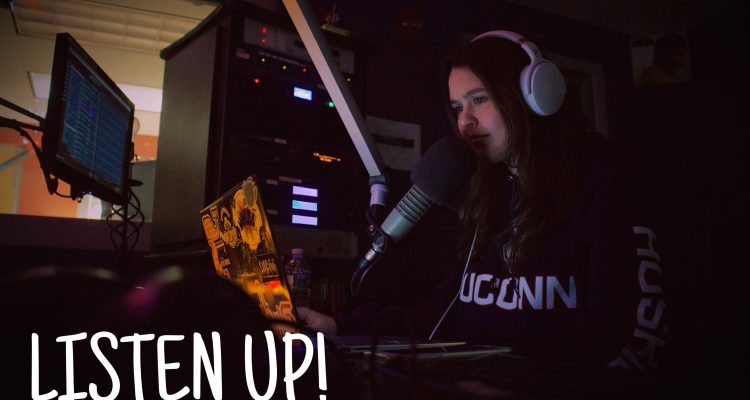To Daniela, for always proofreading my writing and making sure everything is spelled correctly.
~
I’ve heard it said here and there that radio is a dying art form. I mean, who really wants to listen to programs riddled with commercials every other song? I’m talking to you, Jill Merriam, dealer for the people; we get it already that Hyundais are great cars *insert eye roll here*.
Or what about hearing the same top hits over… and over… and over again, no matter what station you switch to? I refused to listen to Twenty One Pilots for a good few years simply because hearing “Stressed Out” stressed me out all throughout 2015.
With Spotify, Apple Music, and even YouTube Red being on the market, what’s the point of tuning in to a station just to hear commercials and songs you’ve heard a million times? It’s so much better to just queue up some songs in ‘driving playlist 37’ and sing along to all your favorite tracks — right?
As much as I love listening to Iron Maiden while cruising down I-84, I think that there’s still a certain appeal to listening to a host or DJ talk about songs from the 80’s new wave scene or discussing what’s going on in society today. Perhaps we can attribute this to the pleasure we draw from the act of listening itself.
Susan Douglas is an author who I’ve had very little exposure to. In fact, I just recently read her Fantasies of Power for the Women’s Studies class I’m taking this semester. Imagine my surprise when I found out that she wrote a book about radio and its history. Given how much I enjoyed reading Fantasies of Power, which I highly recommend, I knew I’d thoroughly enjoy reading Listening In: Radio and the American Imagination.
Anyways, back to this art of listening business. In her book, Douglas argues that people have always loved, and continue to love radio because it allows us to use our brains and create our own images (26): “It is this absence of imagery that is radio’s greatest strength, that allows people to bind themselves so powerfully to this device” (28). I have to agree with this statement; imagination is something that’s hardwired within us. Listening to the radio gives our imaginations the wings to soar beyond the realms of reality and into a different dimension.
I’d like you to take a moment now, dear reader, and think back to when you were a little kid. Now, I want you to think about how many times you used to go outside and pretend to be something — a pirate, a cowboy, some famous athlete. I bet you did this a lot, didn’t you? Imagination at its finest, allowing us to act out any fantasy we so chose.
Or perhaps you would much rather sit in the grass and read a book, as opposed to playing pretend. Although the words of a book can set the scene, it’s up to the reader to piece the descriptions together and make the story flow seamlessly in their brain.
We simply love to imagine, and we do it constantly. Daydreaming, storytelling, thinking about the future, reminiscing about the past — and when we’re provided with some sort of framework to work within, it heightens the experience. The framework could be anything, really. But obviously since we’re exploring radio, I’d like to use sound.
Let’s take rock operas, for example. A rock opera is essentially a collection of rock songs with lyrics relating to a common theme or story. The vocals, instrumentation, and carefully woven together words work together to create beautiful sounds that we’re able to enjoy. We can take this one step further and use our imaginations to really engage ourselves with the music by playing out what’s happening in our heads.
“When sound is our only source of information, our imaginations milk it for all it’s worth,” writes Douglas (28). The auditory sensory information that our brains are receiving is a foundation we’re able to build upon. It’s the thing that sparks our creativity and allows us to engage in active listening. So, when we’re listening to Ayreon’s 2007 release “01011001,” we’re playing out everything that’s happening in the music in our heads, and everyone’s rendition is totally different and unique.
“Sound envelops us, pouring into us whether we want it to or not, including us, involving us” (30). Radio isn’t a dying art: it’s an evolving one. Oral communication has been around since the dawn of time, and it’s simply changed throughout the ages. I mean, if you think about it, weren’t minstrels and town criers like the original DJs and news anchors? Radio offers us an escape from reality through music and storytelling. Most importantly, it feeds our imaginations, stimulates creativity, and inspires us.
As great as that is, though, there’s other caveats besides the aforementioned ads and overplayed songs. Media control is an ongoing issue that has continuously affected the radio scene.
In this context, I plan on exploring various aspects of college radio and its impact on society as well as media control. The pros, the cons, the history — as much of it as I can. So buckle up, because you’re about to witness an accounting student try and analyze radio under the lens of sociological theory.


